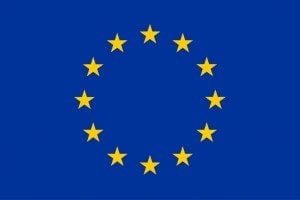
Uzbekistan: Empowering vulnerable communities through building effective and sustainable civil society
Duration: 1 June 2023 – 31 May 2025
Country: Uzbekistan
Communities: Karakalpak, Kazakh, Kyrgyz, Korean, Turkmen, Tajiks, Roma, Russian, Meskhetian Turks and Crimean Tatars as well as women, youth and people with disabilities.
What is this programme about?
This programme aims to promote and protect the human rights and fundamental freedoms of vulnerable groups in Uzbekistan who have been the most socioeconomically affected by the Covid-19 pandemic, as well as suffering from discrimination, violence and stigmatization more broadly. We will achieve this by strengthening the capacities of local civil society organisations (CSOs), grassroots organizations, human rights defenders and civic activists to exercise their fundamental freedoms and monitor the implementation of human rights commitments at local, regional and national levels. We will also develop tools for sound and participatory monitoring and advocacy efforts to build an environment where citizens are empowered right-holders and encouraged to become civil society actors.
Why are we delivering this programme?
Activists and civic actors, including non-governmental and community organizations, play a critical role in strengthening human rights mechanisms. In Uzbekistan, they have yet to fulfil this potential; their influence over decision-making processes and participation in policy implementation and monitoring remain very limited.
In recent years, the government of Uzbekistan has introduced various laws and regulations in support of CSOs aimed at improving the legal framework for civil society activism, including providing state support for CSO activities and partnerships between CSOs and the government. These provisions, though, are often nominal and not implemented in practice due to bureaucratic barriers. This limits the influence of CSOs in decision-making and policy development, further limited by their low legal literacy and organizational capacity.
The weak capacity of the civic sector also undermines the ability of CSOs to effectively monitor and advocate for better policies and practices. This limits the acknowledgement of policymaking and monitoring endeavours undertaken by CSOs by those in power, witnessed by a lack of cooperation between the government and CSOs on issues such as human rights.
As a result, human rights policies and practices at local and national levels often fail to address the needs of the most marginalized, including youth, ethnic minorities, women, and people with disabilities. They lack political and public representation, face multiple obstacles in the effective realization of their social, economic, and cultural rights and are highly vulnerable to poverty, unemployment, gender inequality and health issues. The Covid-19 pandemic further aggravated a pre-existing increase in discrimination and violence and widened the socioeconomic gaps affecting these communities.
What are we doing?
- Training 30 civil society actors, active citizens and community leaders on human rights, techniques for monitoring violations, and national and international evidence-based advocacy.
- Organizing a study visit abroad for the programme partner to diversify their activities, knowledge and methods, and to bring back best practices.
- Sub-granting trained CSOs to conduct advocacy and awareness-raising campaigns on human rights, minority rights and anti-discrimination in their constituency or community.
- Holding roundtables for local organizations with local authorities, state-supported public organizations, the government, decision-makers, and the media to ensure multi-stakeholder dialogue.
- Developing a networking platform enabling participating CSOs to establish coalition relationships for joint action and advocacy.
- Organizing a final conference for local and international CSOs, donor organizations, media, the parliament, and respective ministries and decision makers from the 5 target regions to present the programme results, share experiences and build lasting dialogue and cooperation.
Who is our partners
Civic Initiatives Support Centre (CISC) was established in 2004 with the aim of improving the mechanism of interaction between the government and NGOs in Uzbekistan, ensuring greater transparency in grant-making activities. Its main activities include providing governmental and non-governmental grants to NGOs and monitoring their implementation.
Who is funding this programme?
This programme is supported by the European Union.
 This content represents the views of Minority Rights Group only and is its sole responsibility. The European Union does not accept any responsibility for the use that may be made of the information it contains.
This content represents the views of Minority Rights Group only and is its sole responsibility. The European Union does not accept any responsibility for the use that may be made of the information it contains.
 Programme participants attending training in Ferghana, Uzbekistan. Credit: Nurangiz Khodzharova/MRG.
Programme participants attending training in Ferghana, Uzbekistan. Credit: Nurangiz Khodzharova/MRG.
